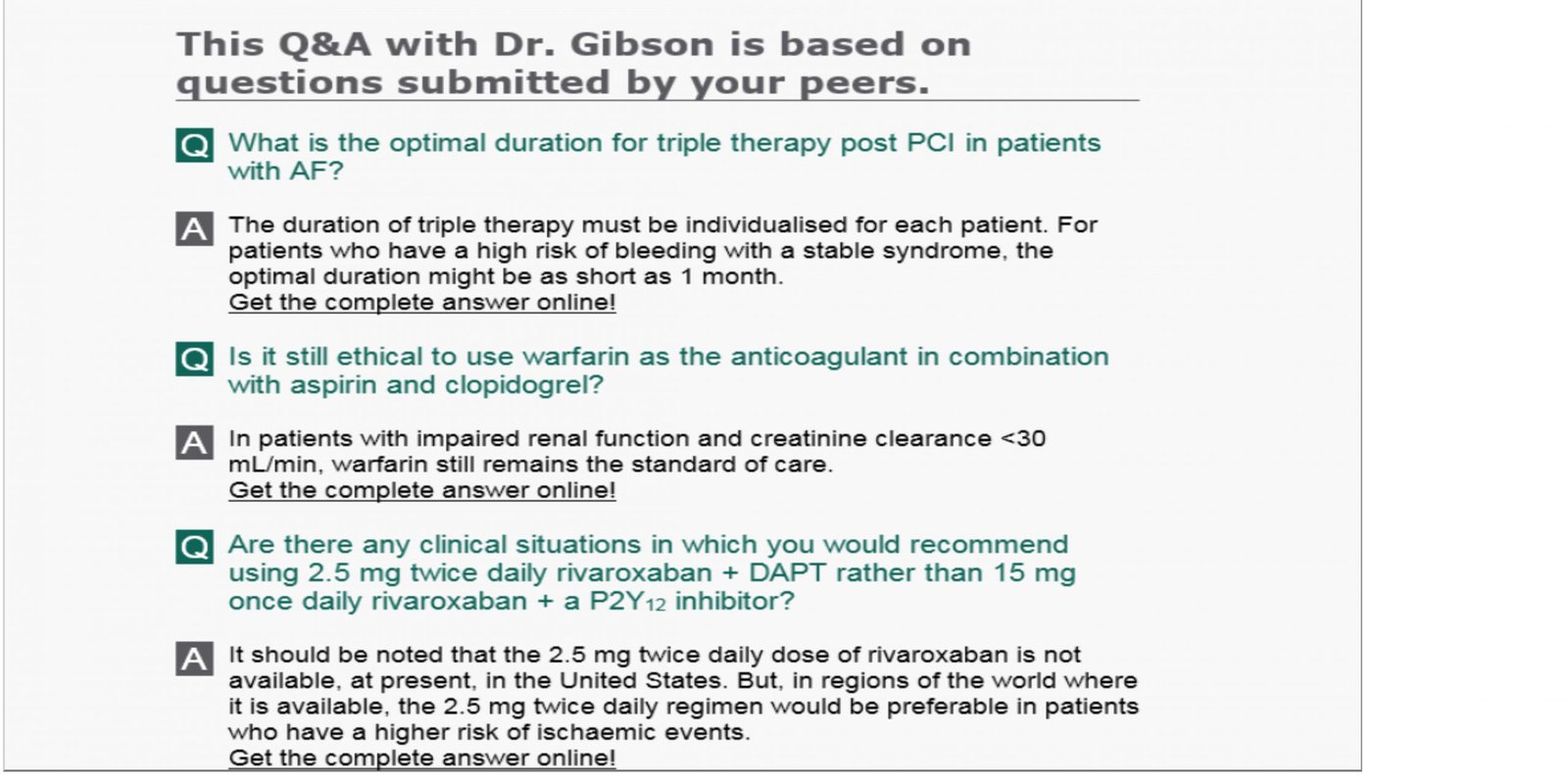Journal Club: Clinical Updates in Oral Anticoagulation for Patients With Atrial Fibrillation Requiring Percutaneous Coronary Intervention
Evaluating Treatment Strategies With a Non–Vitamin K Oral Anticoagulant in Patients With Atrial Fibrillation Undergoing Percutaneous Coronary Intervention

C. Michael Gibson, MS, MD: Hello, I’m Dr. Michael Gibson, and it’s my pleasure to speak to you today about the PIONEER AF-PCI trial.
Many of you know atrial fibrillation (AF) is managed with an anticoagulant, and acute coronary syndrome (ACS) is managed with dual antiplatelet therapy (DAPT). Unfortunately, what we’ve done to date is combine these two classes of drugs into triple therapy to manage these patients with an overlap of ACS (or stenting) and AF, resulting in excess bleeding. To reduce the excess bleeding, physicians in practice have experimented with a lot of different strategies. Unfortunately, we have very little data to inform decisions.
Abbreviation(s): ACS: acute coronary syndrome; AF: atrial fibrillation; DAPT: dual antiplatelet therapy; OAC: oral anticoagulant.
Reference(s): 1. Schmitt J et al. Eur Heart J. 2009;30:1038-1045.

Managing Therapy in Patients With Atrial Fibrillation Undergoing Percutaneous Coronary Intervention: Practical Considerations
Part 2 of 2 from « Journal Club: Clinical Updates in Oral Anticoagulation for Patients With Atrial Fibrillation Requiring Percutaneous Coronary Intervention »
Based on a review of « Prevention of Bleeding in Patients with Atrial Fibrillation Undergoing PCI » (The New England Journal of Medicine. 2016;375:2423-2434).
Content developed in concert with the faculty.
Release Date: 30 January 2017
Expiration Date: 29 July 2018
Learning Objectives
- Review guidelines and data on the use of oral anticoagulation in patients with atrial fibrillation (AF) requiring percutaneous coronary intervention (PCI)
- Summarise recently published data from a study evaluating a non–vitamin K oral anticoagulant (NOAC) for the treatment of patients with AF requiring PCI
- Discuss how these data will impact clinical practice


